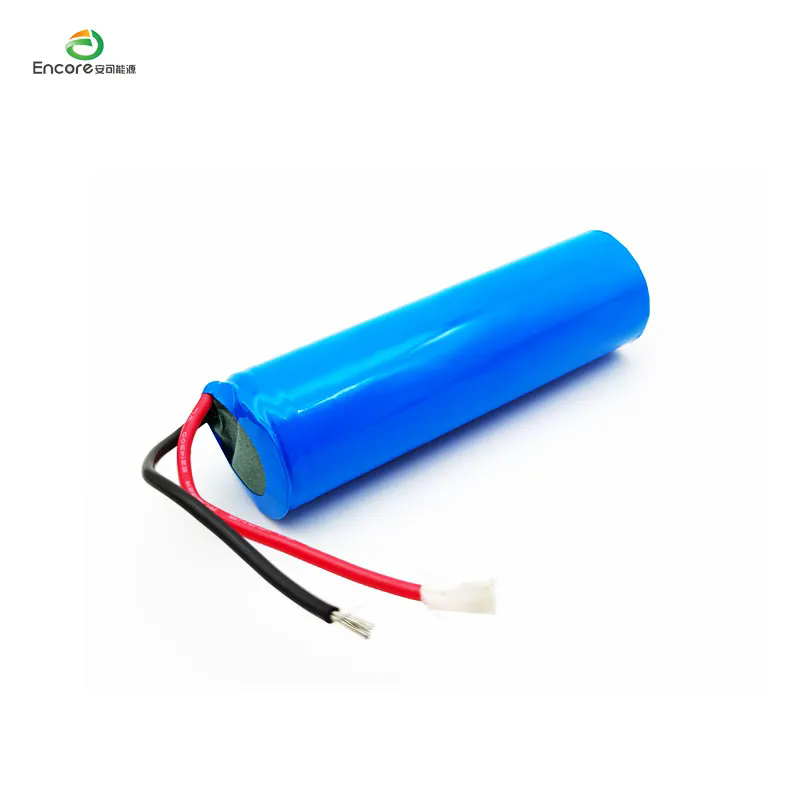The Future of Energy: Understanding Lithium-Ion Batteries
2024-10-12
In our increasingly technology-driven world, the demand for efficient and reliable energy sources has never been higher. Among the many advancements in energy storage technology, lithium-ion batteries (Li-ion batteries) stand out as a transformative solution. From powering our smartphones and laptops to driving electric vehicles (EVs) and storing renewable energy, lithium-ion batteries play a crucial role in modern life. In this blog, we’ll explore what lithium-ion batteries are, how they work, their applications, advantages, and the future of this essential technology.
What Are Lithium-Ion Batteries?
Lithium-ion batteries are rechargeable batteries that use lithium ions as a key component of their electrochemistry. They consist of two electrodes: a positive electrode (cathode) and a negative electrode (anode), which are separated by an electrolyte. During charging, lithium ions move from the cathode to the anode, and during discharging, they move back to the cathode, generating an electric current.
Key Components
- Cathode: Typically made of lithium metal oxide (e.g., lithium cobalt oxide or lithium iron phosphate), the cathode stores lithium ions.
- Anode: Usually made of graphite, the anode serves as the site for lithium ion storage during charging.
- Electrolyte: A lithium salt dissolved in a solvent that facilitates the movement of lithium ions between the anode and cathode.
- Separator: A porous membrane that prevents direct contact between the anode and cathode while allowing lithium ions to pass through.
Applications of Lithium-Ion Batteries
Lithium-ion batteries are incredibly versatile and have a wide range of applications across various sectors:
1. Consumer Electronics
Lithium-ion batteries are commonly found in consumer electronics such as smartphones, tablets, laptops, and wearable devices. Their lightweight design and high energy density make them ideal for portable devices.
2. Electric Vehicles (EVs)
One of the most significant impacts of lithium-ion technology is in the automotive industry. EVs rely on lithium-ion batteries for their energy storage needs, offering a sustainable alternative to traditional gasoline-powered vehicles. With advancements in battery technology, EVs are becoming increasingly efficient and affordable.
3. Renewable Energy Storage
As the world shifts toward renewable energy sources like solar and wind, lithium-ion batteries are playing a vital role in energy storage systems. They store excess energy generated during peak production times for use during low production periods, enhancing grid reliability and promoting energy independence.
4. Medical Devices
Lithium-ion batteries are also used in various medical devices, including pacemakers, hearing aids, and portable diagnostic equipment. Their reliability and compact size make them suitable for life-saving applications.
Advantages of Lithium-Ion Batteries
Lithium-ion batteries offer several advantages over traditional battery technologies, including:
1. High Energy Density
Lithium-ion batteries have a higher energy density compared to lead-acid or nickel-cadmium batteries. This means they can store more energy in a smaller and lighter package, making them ideal for portable devices and electric vehicles.
2. Longer Lifespan
Lithium-ion batteries have a longer cycle life, typically lasting for several hundred to over a thousand charge and discharge cycles. This durability reduces the need for frequent replacements, ultimately lowering costs.
3. Low Self-Discharge Rate
Unlike some traditional batteries that lose charge over time, lithium-ion batteries have a low self-discharge rate, allowing them to hold their charge for extended periods. This feature is particularly beneficial for devices that are not used frequently.
4. Fast Charging Capabilities
Lithium-ion batteries can be charged quickly compared to other battery types, making them suitable for applications requiring rapid energy replenishment.
Challenges and Considerations
Despite their advantages, lithium-ion batteries also face challenges:
- Cost: The initial cost of lithium-ion batteries can be high, primarily due to the materials and manufacturing processes involved.
- Resource Scarcity: The extraction of lithium and other materials used in battery production can raise environmental and ethical concerns, including habitat destruction and labor practices.
- Thermal Runaway: Lithium-ion batteries can be susceptible to overheating, leading to safety risks such as fires or explosions if not managed properly.
- Recycling and Waste: As the demand for lithium-ion batteries grows, so does the need for effective recycling solutions to recover valuable materials and minimize environmental impact.
The Future of Lithium-Ion Batteries
The future of lithium-ion batteries looks promising, driven by ongoing research and development efforts aimed at improving their performance, safety, and sustainability. Here are some trends to watch:
1. Solid-State Batteries
Solid-state batteries, which use a solid electrolyte instead of a liquid one, promise to enhance energy density and safety. This technology could revolutionize electric vehicles and portable electronics.
2. Alternative Materials
Researchers are exploring alternative materials to reduce dependence on lithium, cobalt, and nickel. These innovations aim to make batteries more sustainable and less environmentally damaging.
3. Enhanced Recycling Techniques
Advancements in recycling technologies are being developed to recover valuable materials from used batteries, reducing waste and environmental impact.
4. Integration with Smart Technologies
The rise of smart grids and IoT devices is driving the integration of lithium-ion batteries with advanced technologies that optimize energy usage and enhance grid reliability.
Conclusion
Lithium-ion batteries have become an integral part of our daily lives, powering everything from personal electronics to electric vehicles. With their high energy density, long lifespan, and versatility, they continue to drive innovation across various industries.
As technology advances and new solutions emerge, the future of lithium-ion batteries holds exciting potential for creating a more sustainable and energy-efficient world. Embracing these innovations can help pave the way for cleaner energy and a greener planet.



